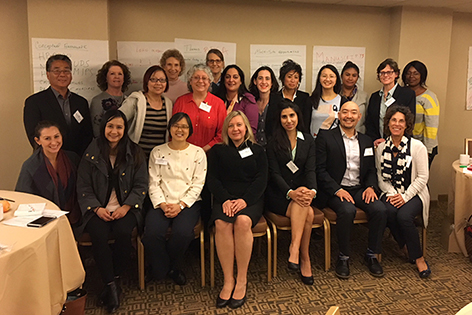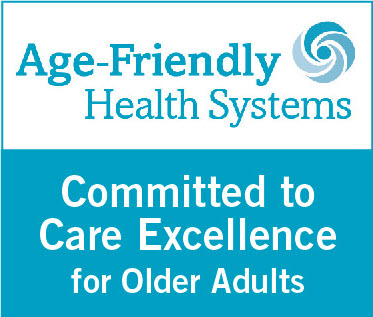
|
|
About the Geriatric Workforce Enhancement Program
 |
|
Credit: UCI Department of Family Medicine, Division of Geriatric Medicine and Gerontology GWEPs from the University of Hawaii, UC San Francisco, UC San Diego and UCI work together to support older adults and build safety nets within Federally Qualified Health Centers (FQHC).
|
The UCI School of Medicine's Geriatric Workforce Enhancement Program (GWEP) is determined to "cultivate a culture of caring for older adults."
Since the grant’s inception in 2015, we have aimed to develop a comprehensive intervention to build a more responsive and agile workforce educated in individual and population-based care, and to drive innovations in care coordination through engagement with our collaborators and communities.
To achieve our goals, we have engaged three core groups:
- Underserved older adults, caregivers and families through partnerships with community organizations
- Interprofessional primary care students and residents working in teams to learn best practices
- Interdisciplinary practicing healthcare providers caring for underserved communities
Working closely with our community partners — AltaMed, Southland Integrated Services Inc, In-Home Supportive Services and the Alzheimer’s Association Orange County — we have developed a comprehensive plan to integrate geriatric skills, knowledge and health delivery processes into major primary care sites and the Orange County community of patients and caregivers.
As the only university hospital in Orange County — and with strong medical and nursing geriatric medicine teaching and clinical programs — we have a mission to help prepare Orange County to address the needs of a burgeoning senior population. Older patients, caregivers and families need access to competent and compassionate care. Consider these facts on aging in Orange County alone:
| • One in four people in Orange County will be 65 or older by 2040. |
| •In 2015, there were 41 board-certified geriatricians in Orange County. The estimated number needed to care for the current older adult population is 177. Orange County faces a critical shortage of board-certified geriatricians, with only 41 practicing in the local area. |
| •In 2015, an estimated 9.4 percent of Orange County seniors were living in poverty. As of 2015, the poverty rate has doubled to nearly 40,000 from 2005 figures. A senior is considered in poverty if his or her annual income falls under $11,367 (living alone) or $14,342 (for two people). |
| It is our hope that this program can serve as a model for cultivating a culture of caring for older adults that geriatric workforces around the U.S. can borrow. |
Acknowledgement
This project is supported by the Health Resources and Services Administration (HRSA) of the U.S. Department of Health and Human Services (HHS) under 1 U1QHP28724-01-00, Cultivating a Culture of Caring for Older Adults, for $2.5 million. This information or content and conclusions are those of the author and should not be construed as the official position or policy of, nor should any endorsements be inferred by HRSA, HHS or the U.S. government.

